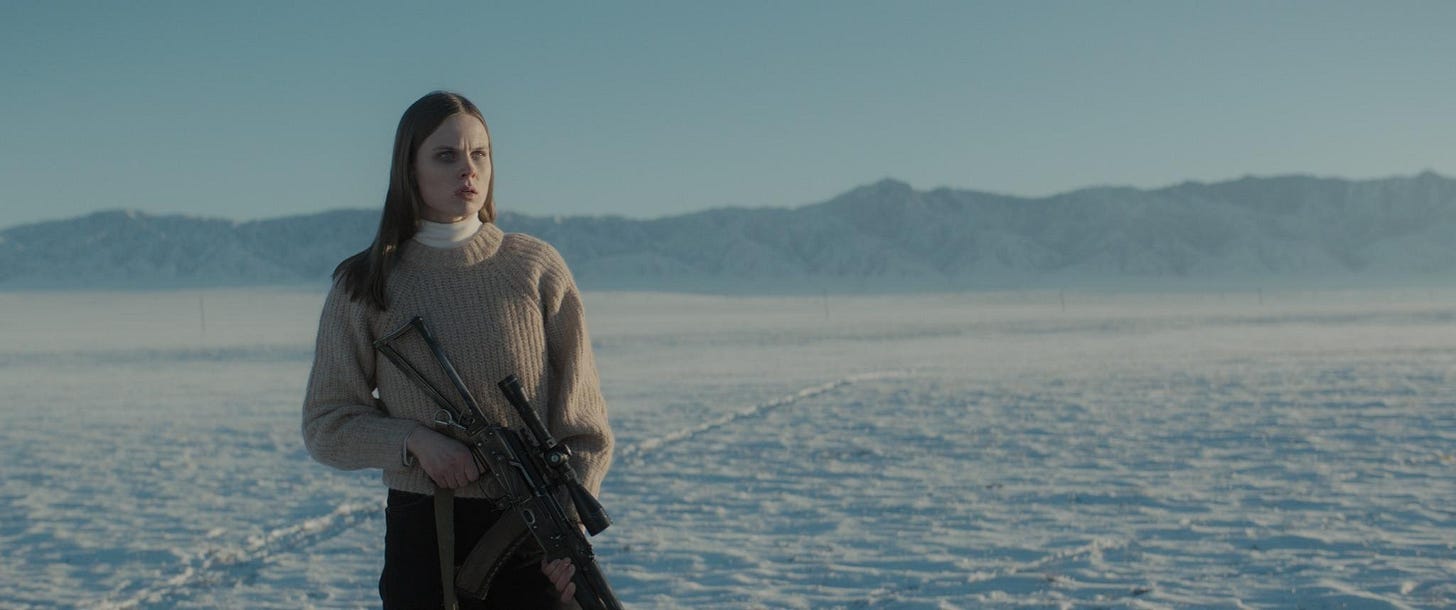Welcome to my coverage of the 33rd Edition of the Singapore International Film Festival. I’m trying to cover most of the films I’m watching with short-form reviews, but between the time needed to actually watch the films and my full-time job I might not get to everything. Writing is tough and takes time! I’m also writing two pieces for the Youth Critics Programme that will be published next year.
I’ve also had the privilege of watching some films on screeners for the festival this year. I’ve decided against writing reviews for most of them but you can find quick takes on my Letterboxd.
On to the review:
The Assault (2022)
How does the premise of a film like The Assault (2022) hit different in a country where gun-based violence is non-existent? To open a film festival here in Singapore with Adilkhan Yerzhanov’s darkly comic thriller that skewers masculine heroism is a curious choice. The film’s premise of a group of terrorists taking a school hostage would certainly raise eyebrows in a country with an epidemic of gun violence, but in a country with zero tangible sense of threat, Yerzhanov’s juxtaposition of discomforting comedy and imminent violence feels especially blunted and ineffective.
The film opens with the masked, silent gun-men casually strolling into a remote school in a comically effortless takeover that takes place right under the noses of the school’s clueless hodge-podge of male staff and teachers. Main character Tazshy, a mousey maths teacher whose wife is trying to leave him, quietly flees at the first sign of gunshots, leaving behind a locked up classroom full of kids, including his own son. With military help two days away, Tazshy rallies that school’s handful of misfit adults to save the kids, and probably more importantly, to help atone for his cowardice and reassert his masculinity.
While the set-up sounds like a ticket to heart-stopping thrills, Yerzhanov’s choice is to slow down the pace of the film as these bunch of buffoonish men debate if they’re even capable of taking down the threat, and cutting each other down to size along the way. Out in the snow-white plains they plan their assault, physically rehearsing manoeuvres and finding out none can shoot for shit, save for Tazshy’s soon-to-be-ex-wife. It’s a recipe with all the right ingredients for a send-up of macho posturing, but I found its messaging too broad to be incisive.
The eight men at the centre of this misguided bit of hasty heroism are crafted out of archetypes, but never seem to go beyond them. While they have characteristics, they do not feel like characters outside the group. Ideally, their different types could pull and tear at pre-conceived notions of masculinity and vigilante heroics, but it feels Yerzhanov merely pokes fun.
The central act of the film in which we watch the men bicker and formulate a plan in the middle of nowhere also pulls us away from the threat waiting for them in the school. The threat of violence feels abstracted and conceptual in a way that deflates the prickly power of Yerzhanov’s choice of premise. I felt too much ease in those scenes of deadpan comedy, and revisiting the villains did not revive their menace. The denouement felt strangely bloodless despite its final burst of violence and the film unfortunately does not gain a second wind, and neither does it find a new angle to complicate its meaning.
Despite my misgivings, the film finds itself to be more frequently funny than I expected, and Yerzhanov and his cinematographer Aydar Sharipov have a knack for well-composed wide shots in the outdoors, indelible images of the masked perpetrators, and frequently packed frames of the central knuckleheads.
In the context of this festival and this audience, I wonder if our perspective on a film like this could be completely different from its intended audience. While it’s easy for us to spot the tomfoolery here, I feel the tension of this choice to “do something” is lost on us. There’s a feeling that we here would find any sort of vigilantism foolish, and most would prefer to leave things in the hands of the allegedly capable state. There is no choice between heroism and cowardice for us here. Heroism is stupid (unless you live) and cowardice is safe (unless you die, then you’re stupid). If we take that mindset into a more cruel and harsh world? I’m afraid we wouldn’t survive.


